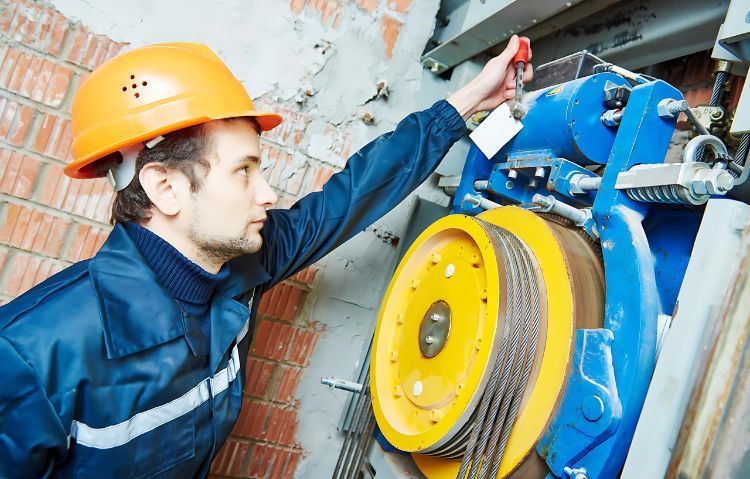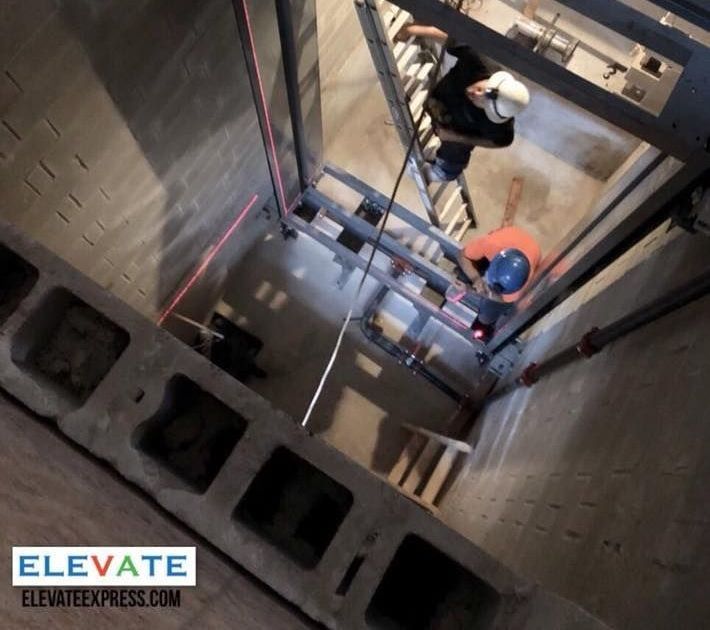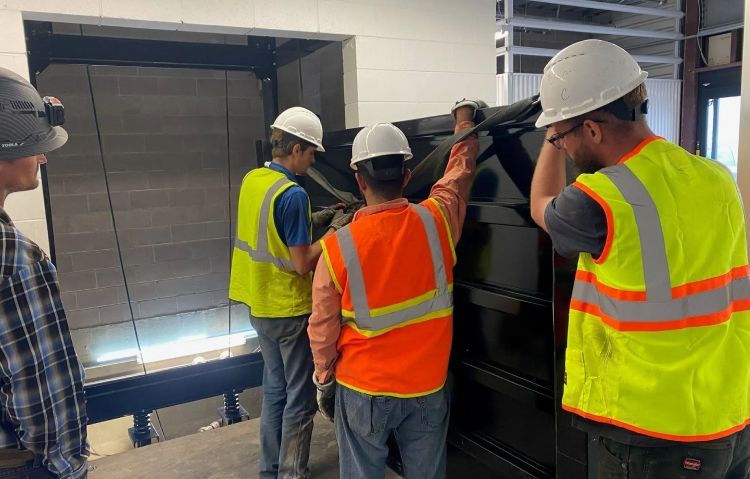Fixing Slow Elevator Response Times: Causes and Solutions
Elevators are vital for the smooth operation of multi-story buildings in growing cities like San Antonio, where urban development continues to rise. In fact, San Antonio has seen a 6% increase in the number of high-rise buildings over the past decade, making fast elevator response times crucial for both residential and commercial occupants. Elevate Enterprises is here to help you identify the causes of slow elevator response times and offer effective solutions to restore efficiency.
Understanding Elevator Response Times
Elevator response time is the gap between pressing the button and the elevator showing up. When that wait drags on, it can cause real frustration—especially during busy hours. In growing cities like San Antonio, where high-rises are becoming more common, delays of 30 to 60 seconds during peak times are often reported downtown. For tenants, employees, or visitors, those hold-ups can throw off schedules and even raise safety concerns when time really matters.

Common Causes of Slow Elevator Response Times
Several factors can contribute to slow elevator performance. Diagnosing the problem early can help prevent further complications. Here are the most common reasons your elevator might be taking too long to arrive:
1. Outdated Elevator System
Elevator response time is the gap between pressing the button and the elevator showing up. When that wait drags on, it can cause real frustration—especially during busy hours. In growing cities like San Antonio, where high-rises are becoming more common, delays of 30 to 60 seconds during peak times are often reported downtown. For tenants, employees, or visitors, those hold-ups can throw off schedules and even raise safety concerns when time really matters.
2. Mechanical Wear and Tear
Mechanical components such as cables, gears, and pulleys degrade over time. When these parts start wearing down, the elevator’s ability to travel swiftly between floors is compromised. With San Antonio’s blend of historical and modern architecture, many buildings feature elevators that are decades old. In fact, more than 40% of elevators in older San Antonio buildings experience delayed response times due to outdated equipment that can't keep up with modern demands.
- Worn-out cables cause delays in door operation and movement.
- Poor lubrication leads to increased friction, slowing the elevator car.
- Outdated or damaged pulleys affect the smooth ascent and descent of the cab.
3. Poor Elevator Maintenance
Elevators need routine upkeep to stay efficient. When maintenance is skipped or delayed, performance starts to slip—especially when it comes to response time. Dust and debris can build up in the system and interfere with smooth operation. Hydraulic components may wear down or lose pressure, slowing movement between floors. And without regular inspections, small problems often go unnoticed until they cause bigger delays.
4. Overloaded or Improperly Balanced Elevator
Elevators are designed to carry a specific weight load. When an elevator frequently exceeds this limit, it strains the system and impacts the overall speed.
- Overloaded elevators trigger safety measures that slow down the elevator’s operation.
- An improperly balanced elevator will have difficulty moving smoothly and efficiently between floors.
5. Inefficient Dispatching Systems
Dispatching is how an elevator system decides which car to send to a particular call. Outdated or inefficient dispatching algorithms can lead to longer wait times, especially during peak hours.
- A non-optimized dispatch system may send the wrong car, increasing wait time.
- Older software often struggles with managing multiple calls at once.
- Advanced dispatching systems can dramatically reduce wait times by optimizing car assignments.
Solutions for Fixing Slow Elevator Response Times
Slow elevator service can frustrate tenants and disrupt daily routines—but it doesn’t have to stay that way. At Elevate Enterprises, we offer practical, proven solutions to help your elevators respond faster and run more efficiently. Here’s what we can do to get things back on track:
1. Modernizing Your Elevator System
If your elevators are slow to respond, outdated equipment is often to blame. Bringing your system up to date can make a big difference. That might mean upgrading both the hardware and the tech behind the scenes.
- Install smarter controls to improve how quickly and efficiently cars are dispatched.
- Replace aging motors, cables, or gears to help the elevator move more smoothly and with less delay.
- Add smart technology that tracks wear and usage, so issues can be caught early—before they slow things down.
Pro Tip: A modernized elevator not only improves speed but also enhances energy efficiency and safety.
2. Regular Preventive Maintenance
A proactive maintenance plan is essential for maintaining elevator performance. At Elevate Enterprises, we offer comprehensive maintenance services to keep your system running smoothly.
- Regular lubrication of moving parts to reduce friction.
- Cleaning and inspecting key components such as cables, pulleys, and doors.
- Performing diagnostic tests to identify potential issues before they become major problems.
Schedule regular maintenance with Elevate Enterprises to avoid costly breakdowns and ensure your elevator performs at peak efficiency.
3. Weight Load Balancing
An elevator that’s constantly overloaded or out of balance won’t run as efficiently as it should. If your system regularly handles heavy traffic, we can evaluate it and make targeted adjustments.
- Calibrate weight sensors so they accurately detect when the car is overloaded.
- Balance the load to ensure smoother, more stable rides.
- Suggest smarter usage patterns during peak hours to reduce strain and improve response times.
4. Upgrading Dispatch Systems
If your building’s elevator system still uses an outdated dispatch system, upgrading to a more modern solution can significantly reduce wait times.
- Implementing intelligent dispatch algorithms to improve call management.
- Installing smart elevator software to predict and respond to traffic patterns.
- Offering advanced features like destination dispatch to optimize passenger flow.
In San Antonio, more buildings are turning to intelligent dispatching systems—and it’s making a real difference. Some have seen wait times drop by as much as 40% during peak hours. These smart systems learn traffic patterns and respond more quickly to calls, helping elevators run smoother and keeping people moving with less delay.
Benefits of Addressing Slow Elevator Response Times
For property owners in San Antonio, addressing slow elevator response times not only improves user satisfaction but can also increase property value. Buildings with modern, efficient elevator systems are more attractive to tenants, and have seen rental rates increase by 15% over those with outdated elevator systems.
1. Enhanced User Satisfaction
When elevators respond quickly, people notice—in a good way. Long wait times frustrate tenants, visitors, and employees alike. Fixing the problem leads to real benefits:
- Shorter waits, even during busy times
- A smoother, more convenient daily experience
- A stronger reputation for keeping your building running efficiently
2. Increased Safety
An elevator that’s slow to respond could also signal safety concerns. Mechanical issues that affect speed can often lead to more severe malfunctions if left unaddressed. Fixing these issues helps:
- Ensure safety mechanisms are functioning correctly.
- Prevent unexpected breakdowns.
- Ensure swift responses during emergency evacuations.
3. Energy Efficiency
Elevators that lag or take too long to respond often draw more energy than they should. Improving their performance helps them run smarter—not harder. The result?
- Reduced energy costs month after month
- Less strain on the environment
- Better compliance with today’s efficiency standards and regulations
4. Boosted Property Value
Modern, well-maintained elevators are an attractive feature for any building. Property managers and owners who invest in fixing slow elevators can see a boost in their building’s overall value.
- Faster elevators are a selling point for potential buyers and tenants.
- Buildings with efficient elevators are more attractive to businesses and residents.
- Enhanced reliability can justify higher rental rates.
Why Choose Elevate Enterprises?
At Elevate Enterprises, we don’t just fix elevators—we keep buildings moving. With years of real-world experience and certified technicians on every job, we bring practical knowledge and reliable service to the table. From everyday maintenance to major upgrades, we tailor our work to match your building’s exact needs. We focus on keeping things safe, efficient, and running without a hitch. When you need results you can trust, we’re the team that shows up and gets it done right.
Frequently Asked Questions (FAQ)
What causes slow elevator response times?
Elevators can slow down for a number of reasons—sometimes it’s old hardware, worn-out components, or skipped maintenance. Other times, the system might be overloaded or relying on outdated dispatch controls. Whatever the cause, the key is figuring it out early. With the right mix of upgrades, regular tune-ups, and smart load management, you can speed things up and avoid bigger issues down the road. That’s exactly what we do at Elevate Enterprises—get your system running the way it should.
How can I improve my elevator’s response time?
The best way to speed up your elevator is by keeping up with maintenance and updating key parts when needed. Upgrading things like motors, control panels, and dispatch systems can make a big difference in how quickly your elevator responds. At Elevate Enterprises, we take a close look at what’s slowing things down and put together a plan to fix it—so your elevator runs faster, smoother, and more reliably.
Does upgrading an elevator’s software improve response times?
Yes, it can. Modern elevator software is designed to handle traffic more intelligently. By upgrading, you’re giving your system the tools to respond faster and make better decisions—like which car to send and when. This leads to shorter wait times, especially during busy periods. At Elevate Enterprises, we offer software upgrades that fine-tune performance and keep your elevators running at their best.
Why is regular elevator maintenance important?
Keeping up with elevator maintenance isn’t just about avoiding breakdowns—it’s about making sure everything runs safely and efficiently. Over time, parts wear down, response times slow, and energy use goes up. Without regular checkups, small issues can turn into big (and expensive) problems. At Elevate Enterprises, we offer maintenance plans that keep your system in top shape, extend its lifespan, and help prevent surprises down the line.
Restore Your Elevator’s Efficiency Today
Slow elevator response times are not just an inconvenience—they can also signal deeper mechanical or software issues that need immediate attention. At Elevate Enterprises, we specialize in diagnosing and fixing slow elevators, ensuring that your system runs efficiently and safely. Equipped with cutting-edge technology and expertise, our team of certified technicians can tackle everything from mechanical repairs to comprehensive modernization projects.
Reach out to Elevate Enterprises for a full inspection of your elevator system. We’ll pinpoint what’s causing the slow response times and recommend practical solutions that work for your building. Don’t let sluggish elevators disrupt your day—schedule a consultation with our team and get things moving again.
Slow elevator response times usually point to aging parts, lack of maintenance, or outdated systems. The good news? These problems are fixable. With the right upgrades and regular care, your elevators can run faster, safer, and more reliably. At Elevate Enterprises, we’re here to help you make that happen—so your building stays efficient, and your occupants stay satisfied.


